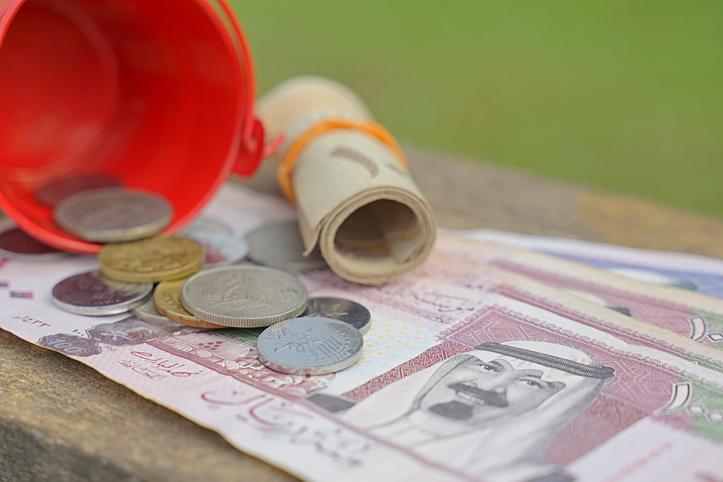US and UK Impose Coordinated Sanctions on Russian Metal Imports
In a significant move to pressure Russia amid ongoing conflicts, the US and UK have announced synchronized sanctions targeting Russian metal imports, seeking to undermine Russia's financial base and military capabilities.
Published April 15, 2024 - 00:04am
The United States and the United Kingdom have jointly announced a ban on the imports of aluminum, copper, and nickel originating from Russia, in a collaborative effort to curtail Moscow's revenue and to respond to the ongoing conflict with Ukraine. The US Treasury Department released a statement explaining that these measures prohibit the import of these base metals into the United States and restrict the use of Russian-origin metals in global metal exchanges and in over-the-counter derivatives trading.
US Treasury Secretary, Janet Yellen, emphasized that these sanctions, coordinated with the UK, will continue targeting the revenues Russia could earn to sustain its aggressive actions against Ukraine. Yellen underlined the intention to reduce Russian profits while safeguarding partners and allies from unwanted repercussions. UK Chancellor of the Exchequer, Jeremy Hunt, echoed the importance of disrupting President Putin's capacity to fund what he described as an illegitimate conflict, adding that the steps taken with the US will curb the Kremlin's ability to convert metals into funds for its military machine.
In line with these collective measures, metal exchanges like the London Metal Exchange and the Chicago Mercantile Exchange are now prohibited from accepting newly produced Russian aluminum, copper, and nickel. Metal exchanges play a central role in facilitating the trade of industrial metals worldwide, and through these joint actions, both the US and the UK deprive Russia and its metal producers of a crucial income source.
While Moscow has not immediately responded to the sanctions, the move signifies the continued international response to Russia's activities in Ukraine. The action underscores the global financial markets' role in geopolitics and the possible impacts of sanctions on industry sectors that underpin major national revenues.
The coordinated sanctions announced by the United States and the United Kingdom represent an escalating effort to exert financial pressure on Russia's war chest. With the inclusion of aluminum, copper, and nickel—three commodities that are pivotal in various industries such as construction, automotive, and electronics—the impact of these sanctions could resonate through multiple sectors of the global economy. The sanctions will likely influence market pricing, supply chains, and international trade flows, given Russia's role as a key global supplier of these metals.
Analysts point out that curbing Russian access to metal exchanges will not just affect the country's immediate financial liquidity but also its long-term investment prospects and development plans. The London Metal Exchange, for instance, is the world's largest market in options and futures contracts on base metals, which means that being barred from such platforms may significantly limit Russia's ability to engage in complex financial instruments that could otherwise hedge against market volatility or fund future projects.
Given the interconnected nature of global markets, the sanctions also pose a challenge for international companies that rely on Russian commodities. The disruptions may trigger firms to seek alternative suppliers or even to reevaluate their supply chain resilience strategies. Crisis-spawned opportunities also surface as some producers outside Russia could see increased demand for their materials if buyers shift away from sanctioned goods. However, this shift could take time, and markets may face short-term instability and price increases as they adjust to the new restrictions.
Meanwhile, the humanitarian and economic impacts of the conflict in Ukraine continue to stir global concern, with the United Nations and various relief organizations calling for intensified international support. Economic sanctions such as those on metals are seen as part of broader efforts to apply pressure on Moscow to cease military actions and seek a peaceful resolution. Some experts have noted the delicacy of these measures, as they must be precise enough to target the intended economic sectors without causing undue harm to civilian populations or international partners.
Environmental consequences are yet another aspect to consider. As Western countries decline Russian metals, the demand might steer towards mining operations in other parts of the world, possibly affecting ecosystems differently. Strategic minerals like nickel, necessary for electric vehicle batteries, are at the center of a green transition, and sourcing them becomes even more contentious under the shadow of geopolitical frictions. This situation presents a complex dilemma for nations aiming to balance economic sanctions with sustainability goals.
In response to the sanctions, it is anticipated that Russia will seek to realign its trade relationships and bolster ties with alternative markets. Countries such as China and India, which have maintained neutral stances or have shown willingness to engage with Russian commodities, could emerge as pivotal trade partners. The diversification of Russia's trade relations may redefine international trade corridors, with a potential long-term shift in the global commodities market landscape.
Public statements from US and UK officials indicate that the sanctions are open to adjustments based on the evolution of the conflict and its wider implications. The comprehensive impact of these new restrictions is yet to be fully seen, but they add yet another layer to the complex tapestry of international diplomacy and economic warfare. As the situation evolves, the US Treasury Department and the UK Treasury have committed to ongoing assessments to ensure that the sanctions achieve their intended effects without causing unnecessary damage to international allies and the global economy.
For now, the world watches as economic levers are pulled in this modern display of soft power, challenging global stability and testing the resilience of international systems against the backdrop of confrontation. The nuanced and far-reaching implications of the sanctions against Russian metals are set to ripple across political and economic spheres in the weeks and months to come.







